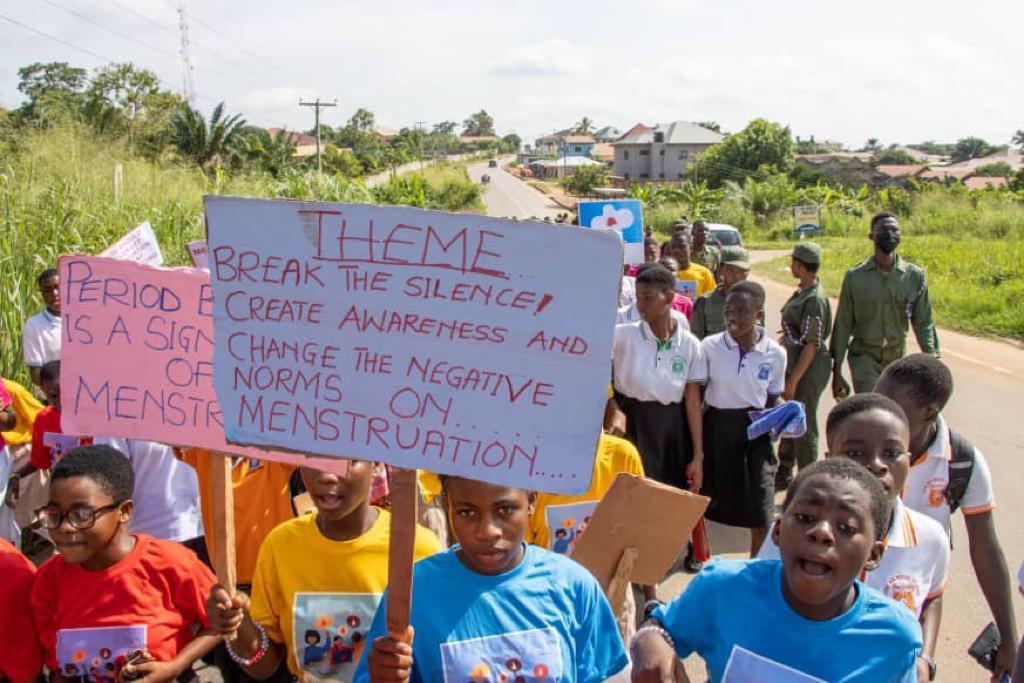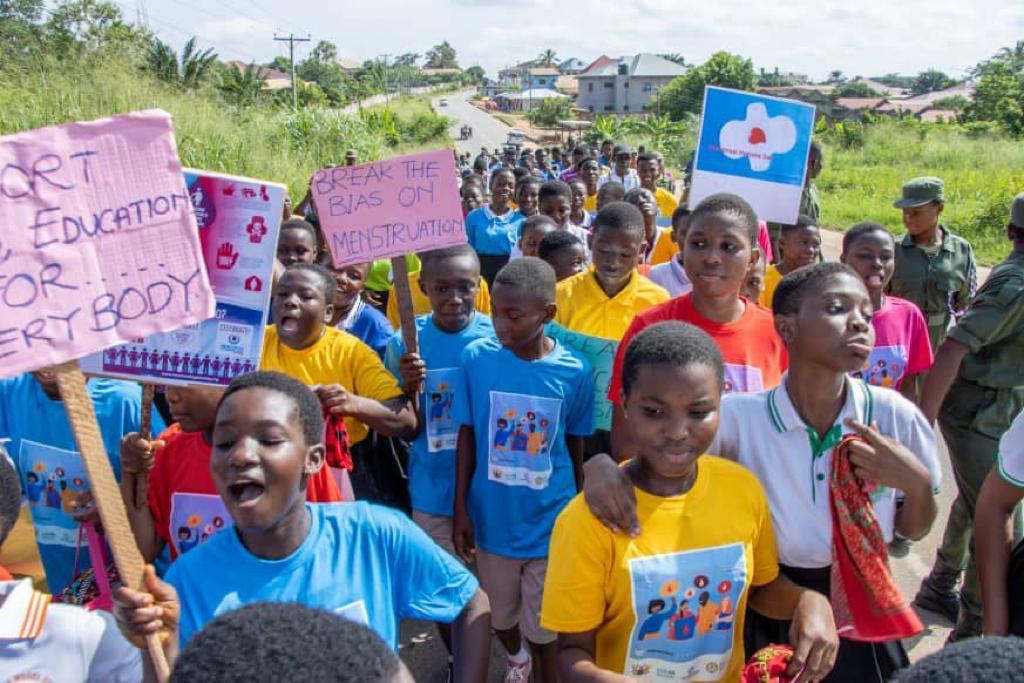
Ejisu: Sanitation Ministry marks Menstrual Hygiene Day
The Ministry of Sanitation and Water Resources has marked this year’s Menstrual Hygiene Day at Ejisu in the Ashanti Region.
The Menstrual Hygiene Day is an annual awareness day that falls on May 28. The day highlights the importance of good menstrual hygiene and management at a global level.
Menstrual Hygiene Day (MH Day) coincides with the International Day of Action for Women's Health 2022, across the world.
The day highlights the importance of menstrual care and raises awareness about the social issues faced by women during menstruation and those who don't have access to sanitary products.

Awareness creation
The Ministry, on Friday, May 27, 2022, selected some students from basic and senior high schools in the Ejisu metropolis to educate them on what they needed to know about safe and hygienic menstruation.
Through drama, poems, and cultural performances, these students were schooled on the global day and how they would help spread the news and myths surrounding menstruation.
Early on, the group, carrying placards, walked through some principal streets of the municipality to create awareness of the day’s commemoration.
The local theme for this year’s Menstrual Hygiene Day is “Break the Silence! Create Awareness and Change the Negative Norms on Menstruation”
Stigmatization
Speaking at the event, Kweku Quansah, Deputy Director, Ministry of Sanitation and Water Resources, noted that women and girls being able to manage their menstrual cycle with dignity was a human rights issue.
“Part of restoring this dignity is to do away with the stigma that exists around menstruation by ending the silence, through education, advocacy and awareness campaigns”, he emphasized.
“It is our responsibility to invest in education, sanitary products, and infrastructure and more importantly in research to understand the relationship between menstruation, social and physical health outcomes”, he said.

Sanitation
Mr Quansah said girls and women deserve to menstruate in a healthy environment and for this reason, infrastructure such as water supply, household toilets, hand washing facilities as well as an environmentally safe and hygienic disposal system was a necessity.
He added that the government was committed to promoting menstrual hygiene and had introduced a number of interventions to ensure that women and girls are able to manage their menstrual cycle with dignity.
He said the Ministry through the Greater Kumasi Metropolitan Area Sanitation and Water Project (GKMA-SWP) will within the project period provide access to improved toilet facilities to serve over 150,000 low-income people in 30,000 households in the GKMA.
“Under the same project, 120 fit-for-purpose, gender and disability-friendly school sanitation facilities will be provided to over 200,000 school pupils of low-income communities within the GKMA,” he said.
He said it was now a basic requirement for all households to have decent toilet facilities, urging the general public to apply for the construction of same since the Ministry has drastically subsidized the cost involved.
